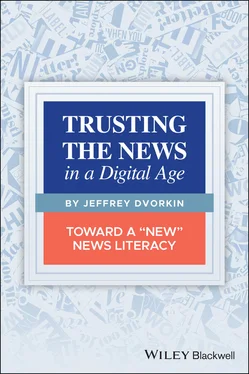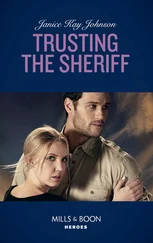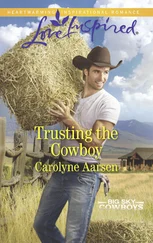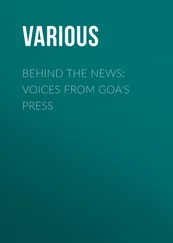Opinion journalism has an additional advantage: it is less costly to produce. Talk radio and cable TV thrived in this atmosphere and continue to do so.
This has been building for many years, as media organizations – both print and broadcast – have discovered that having point‐of‐view journalists in the studio and columnists – both types of reporters who independently gather news and who also share their perspective and agenda – is less expensive than a news bureau – a centralized office where a news organization gathers and distributes all of its news. Investigative reporting units inside news organizations have been stripped down or abandoned completely and replaced by mills for more popular content. News organizations, driven more by delivering dividends to shareholders, worry about lawsuits and damage to reputation.
Complicit in this downgrading of reportage has been the eager collusion of news consultants who have pushed the quality of journalism into a more tabloid and down‐market phase. These consultants, also known as “news doctors,” became a ubiquitous presence inside news organizations. Brought in to find ways to improve efficiencies and maximize audience numbers, they often found themselves at loggerheads with an entrenched newsroom culture that opposed the increasing influence of digital technologies.
Many legacy news organizations now feel that circumstances, along with the public sensibility, force them to provide “journalism with an edge.” Old ways of journalism are being rapidly changed and even abandoned.
“Discard the ossified practices of objectivity…”
Pinar Gurleyen and Robert Hackett, two Canadian academics, make a strong argument that journalism needs to “discard some of the ossified practices of objectivity that stifle political understanding and engagement…” (2016, p. 51). In other words, journalism needs to have a viewpoint and a purpose. This proposal is appealing yet fraught with unintended consequences, including the replacement of fact‐based reporting with more opinion journalism. While there is a place for considered opinion, the risk remains that more opinion and less evidence‐based reporting would not serve the information needs of citizens who still need reliable information more than ever, especially at the local level. More opinion journalism can allow for the intrusion of advocacy and “fake news” into the media landscape.
Ethical Dilemma #2: Should Journalists Pay for News?
You are interviewing a person who has an amazing story to tell about surviving on the mean streets of your town. He admits he has a drug addiction, but he also has identified a beat cop who has brutalized him, even as the cop obtained drugs for a number of other people .
Your source is prepared to name names, but he wants your tape recorder in exchange. Your news director has told you that new recorders are coming this week, and your old machine will be junked .
The interview is too good to give up. You record the interview and email it back to the station. You have a great interview that will change how people living on the streets are treated, and you will possibly expose an example of police corruption. But you risk being accused of “paying for news” by giving the recorder to the source .
1 Should you ever pay for a news story?
2 Can you justify giving away company property to get the story?
3 Did you abet a crime by knowing that person with a drug addiction would use the recorder to get another fix?
4 Did you cultivate your source, or were you steering him to get a better story?
5 Is this different from buying a drink for a political source to get a story?
1 Beckett, C. (2017, August 17). Truth, trust and technology: Finding a new agenda for public information. London School of Economics and Political Science https://blogs.lse.ac.uk/polis/2017/08/17/truth‐trust‐and‐technology‐finding‐a‐new‐agenda‐for‐public‐information/.
2 Bernstein, J. (n.d.). Jon Bernstein: Five innovations in news journalism, thanks to the web. Retrieved November 23, 2020. Editors Blog | Journalism.co.uk. https://blogs.journalism.co.uk/2009/09/23/five‐innovations‐in‐news‐journalism‐thanks‐to‐the‐web/
3 Eliot, T.S. (1991). Burnt Norton. In Collected Poems, 1909‐1962 (pp. 175‐181). Harcourt Brace Jovanovich.
4 Escher, A. and Ha, A. (2016, September 25). WTF is clickbait? TechCrunch https://techcrunch.com/2016/09/25/wtf‐is‐clickbait/.
5 Gurleyen, P. and Hackett, R. (2016). Who needs objectivity? Journalism in crisis, journalism for crisis. In: Journalism in crisis: Bridging theory and practice for democratic media strategies in Canada (pp. 27‐52) (eds. M. Gasher, C. Brin, C. Crowther, et al.). University of Toronto Press https://doi.org/10.3138/9781442625198‐005.
A good explanation of the Rusbridger Cross phenomenon:
1 Elstein, D. and Price, T.C. (2008, December 2). That elusive Rusbridger Cross. Open Democracy https://www.opendemocracy.net/en/that‐elusive‐rusbridger‐cross/.
Annual Ofcom Study 2018:
1 Jigsaw Research (2018, July 13). The changing world of news: Qualitative research. Ofcom https://www.ofcom.org.uk/__data/assets/pdf_file/0023/115916/The‐Changing‐World‐of‐News.pdf.
Two examinations of the challenges to journalism:
1 Lee‐Wright, P., Phillips, A., and Witschge, T. (eds.) (2012). Changing Journalism. Routledge.
The authors maintain that journalism loses when the quest for ratings deform service to the audience:
1 Rosenstiel, T., Just, M., Belt, T. et al. (eds.) (2007). We Interrupt this Newscast. Cambridge University Press.
Конец ознакомительного фрагмента.
Текст предоставлен ООО «ЛитРес».
Прочитайте эту книгу целиком, купив полную легальную версию на ЛитРес.
Безопасно оплатить книгу можно банковской картой Visa, MasterCard, Maestro, со счета мобильного телефона, с платежного терминала, в салоне МТС или Связной, через PayPal, WebMoney, Яндекс.Деньги, QIWI Кошелек, бонусными картами или другим удобным Вам способом.












